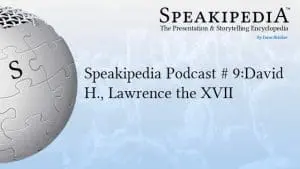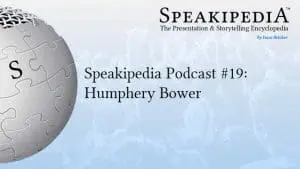 Two-word clichés are perhaps the least obvious kind. Unless we’re vigilant, they sneak into our prose, steal color, mask our individual writer’s voice, and make us sound like millions of other writers who mindlessly employ the same worn out word combinations. I find countless examples even while editing the work of accomplished authors.
Two-word clichés are perhaps the least obvious kind. Unless we’re vigilant, they sneak into our prose, steal color, mask our individual writer’s voice, and make us sound like millions of other writers who mindlessly employ the same worn out word combinations. I find countless examples even while editing the work of accomplished authors.
I explored traditional clichés in an earlier post, suggesting that writers who employ phrases like “loose cannon,” “fly off the handle,” and “bitter end” should do so with an understanding of their origins. A loose cannon could do tremendous damage on a rolling ship. An axe head that flies off its handle could easily kill someone. Hanging on to the bitter end of a rope is prerequisite to fastening it (to the bitts or cleats) on the dock. Every cliché has a story, and writers who understand the origins of clichés use them in more meaningful ways.
The two-word cliché is a different animal. Though it may have historical roots (or be a useful-but-tired metaphor like “low-hanging fruit” or “level playing field”), it’s usually comprised of two words that have stuck together and fallen into popular use—often an adjective and a noun. These pairs become inseparable to a point where writers rarely use one word without the other.
Redundant Writing Clichés
Some two-word clichés are redundant. Sticky glue, colorful paint, sandy beaches, and towering heights can survive just fine without their useless adjective parasites. When a character shares her inner thoughts, is it necessary to differentiate them from her outer ones? Are dark caves an anomaly? I haven’t seen any well-lit ones. When you hire a qualified professional and he botches the job, does that person become an unqualified professional or does it make more sense to drop the professional designation altogether? Terrible wars? Are there pleasant ones? Has anyone ever intentionally built a penetrable fortress? For that matter, has anyone successfully built an impenetrable one? And to stay on-topic, how about those tired clichés? Have you heard any fresh, new ones lately?
Popular Partners Writing Clichés
Other two-word clichés are random word couplings that have become popular. Thriving economies worship the mighty dollar. Hardened criminals in cramped quarters face dire circumstances with grim determination. Brutal dictators greet throngs of ardent supporters with wild enthusiasm. Inveterate do-it-yourselfers publish their own books, seeking golden opportunities. Are seas really rough, or is that a better way to describe sandpaper?
Writing Clichés: Fixing the Problem
If the horizon is worth mentioning, it can probably be assumed to be an expansive horizon. Can you find a different adjective that isn’t used by every autopilot author? Why not abandon the overused adjective and let the horizon “embrace the sea” or “challenge one’s significance?” Don’t try to build art from prefabricated parts. Try a different twist on “deadly” and aim with molecular accuracy.
A silvery moon rose over the expansive horizon. Lying low on the sandy beach in the driving rain with the rolling hills of France behind him, Vincent inhaled the pungent aroma of Europe’s terrible war. Acrid smoke rose from the battle site. Holding his fallen comrade’s dog tags in a deadly grip, he swore a solemn oath that by morning, he would find a way into the enemy’s impenetrable fortress.
The example above is technically correct. It sets a scene with descriptions of sights and smells. It concisely describes a character’s circumstances, explains his mission, and sets up the challenge he’ll overcome in the narrative that follows. Developmentally, it’s good storytelling, but the prose is burdened with two-word clichés. How many millions of writers use these same descriptions?
A silvery moon rose over the expansive horizon. Lying low on the sandy beach in the driving rain with the rolling hills of France behind him, Vincent inhaled the pungent aroma of Europe’s terrible war. Acrid smoke rose from the battle site. Holding his fallen comrade’s dog tags in a deadly grip, he swore a solemn oath that by morning, he would find a way into the enemy’s impenetrable fortress.
In the example, the two-word clichés, stripped of their adjectives, reveal the passage to be little more than a simple list of elements—moon, horizon, beach, rain, hills, aroma, war, smoke, gripping, oath, fortress—padded with fluff. Why not rebuild from this foundation by finding better adjectives or expanding on some of their roles?
A yellow moon rose over the lip of the sea. Entrenched in the sand before the dark contours of the French countryside, the stench of war clawed at Vincent’s throat. Smoke rose from the battle site. Madding rain drummed on his helmet, roaring in his ears, slipping cold tendrils down his neck. Clutching Rick’s bloody dog tags between his rifle stock and palm, he swore that by morning, he would find a way into the enemy’s fortress.
So often we reach for predictable pairings. Like logo designs that offer globes and swooshes, the comfort that comes with familiarity blinds us to the fact that these elements do nothing to differentiate us from other writers (or businesses). Here are some more overused word pairs:
noble challenge
honored guest
sweet revenge
burning question
cold cash
deadly accuracy
fluffy clouds
deep blue sea
cozy fire
comfortable cottage
undisputed master
pretty picture
stone dead
warm welcome
simmering stew
winding path
passionate kiss
sparkling diamonds
triumphant return
slippery slope
brutal honesty
burning desire
In a medium where overlap is a given—we all use the same English words—finding your individual voice is a challenge. And if we stray too far from the pool of popular language, we alienate readers. The goal is not to remove every “popular pairing” from our writing (I’m sure this blog is full of two-word clichés and someone will inevitably point to one I’ve unconsciously dropped into this article). Any rule that purports to govern the “right way to write” will fail. Key is to develop awareness—an ability to spot patterns and cliché forms so that we can apply conscious decision-making. Most writing style problems occur because the author is unaware that s/he’s using the same tired patterns that millions of other writers toss mindlessly onto the page. As you read, consider whether your word pairings are merely comfortable or if they’re colorful representations of your expressive writing ability.
Articles in the Writing is Design Series include:
Writing is Design: Avoid Bland Pronouns and Boring Verbs
Writing is Design: Avoid Writing Clichés for Better Prose
Writing is Design: Two-Word Writing Clichés
Writing is Design: Boring Words & Generic Descriptions — Not Nice!
Writing is Design – Writing Dialogue: He Said. She Said.
Writing is Design: Eliminate THAT Fat From Your Writing
Writing is Design: Shy Away from Timid and Passive Writing





